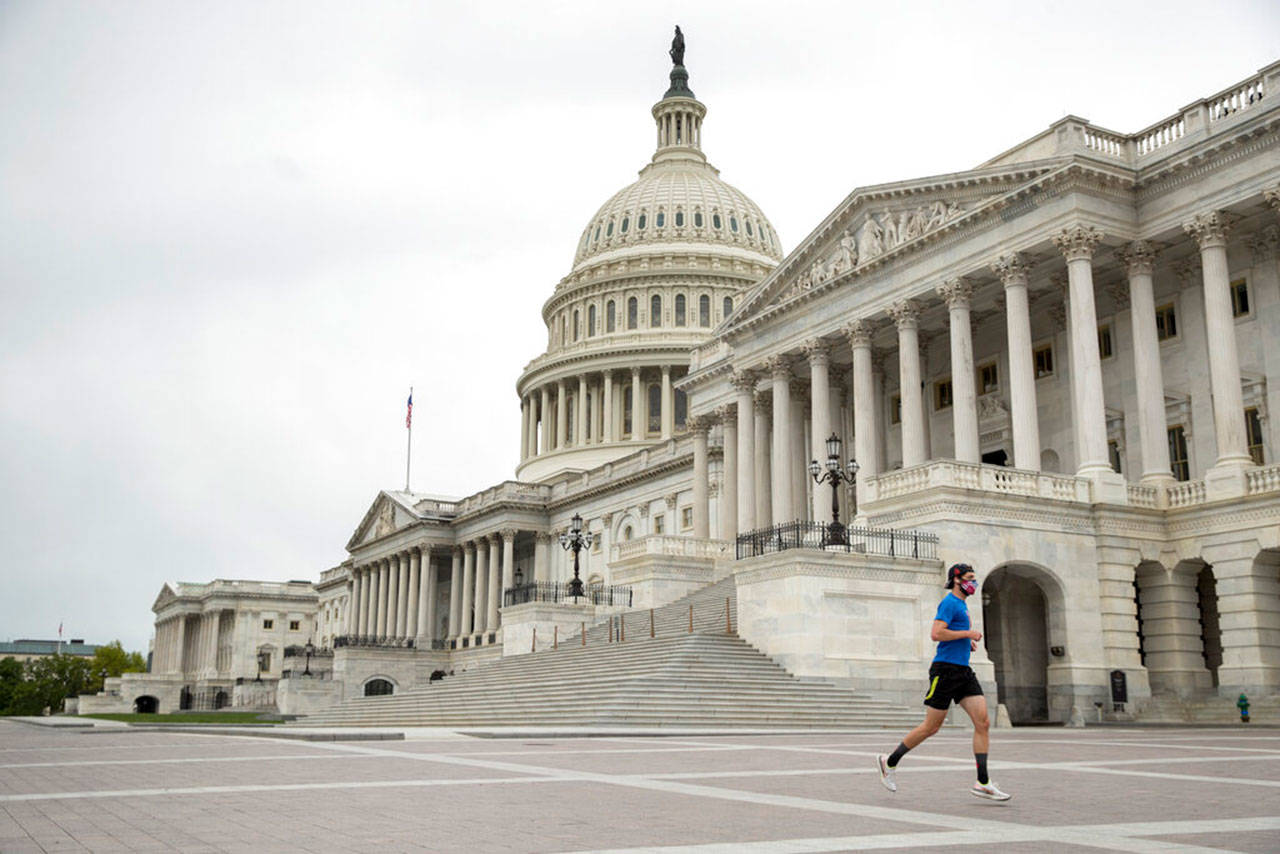By Lisa Mascaro | AP Congressional Correspondent
WASHINGTON — The Senate will gavel in Monday as the coronavirus rages while the top House Republican is proposing a “hybrid” reopening for the still-shuttered House as a divided Congress struggles to fully resume during the pandemic.
Rep. Kevin McCarthy, the minority leader, suggests the full House should remain closed, due to health risks, but its committees could convene to craft legislation — including a possible new virus aid package. He calls it the “crawl, walk, run” plan. Lawmakers face a deepening national debate over how best to confront the deadly pandemic and its economic devastation.
“This is doable,” the California Republican said on Politico’s Playbook in a virtual interview.
The 100 senators are convening for the first time since March, while the House is following the Capitol physician’s advice to stay away, as the conflicted Congress reflects an uneasy nation. The Washington area remains a virus hot-spot under stay-home rules.
Tops on the Senate agenda is not necessarily the next virus aid package, despite a nationwide jobless rate that’s approaching Great Depression-level heights and pleas from the governors for more money.
“There’s kind of a pause period right now,” said White House’s Larry Kudlow, director of the national economic council, on CNN.
Senate Republicans are trying to set the terms of debate, frustrated that House Speaker Nancy Pelosi was able to fill up earlier aid bills with Democratic priorities. They’re reluctant to unleash federal funds beyond the nearly $3 trillion Congress already approved in virus relief.
Instead, Senate Republicans are counting on the country’s reopening to kick-start the economy as their best hope to limit a new round of big spending. Pelosi’s team is quietly drafting the next aid proposal.
“We have to reopen our country,” President Donald Trump said during a town hall on the eve of the Senate’s return, even as he revised upward his projection for the total U.S. death total to 80,000 or 90,000.
The COVID-19 crisis has all but closed Congress since late March, a longer absence than during the 1918 Spanish Flu or the 2001 terror attacks.
House Democrats proposed a new system of proxy voting and remote session. It would be a historic first for Congress, which under the Constitution expects lawmakers to be “present.” But without Republican support the plans were shelved for more debate.
McCarthy said he opposes proxy voting because the system could be rigged either by lawmakers themselves or others trying to hack it. The House chamber faces up to one billion cyber intervention attempts each week, he said. He warned against trying to solve the nation’s problems remotely, “by Zoom.”
“There is something special with people meeting face to face,” McCarthy said.
In making his decision to return, Senate Majority Mitch McConnell compared senators to the essential work force of grocery clerks, truck drivers and others keeping Americans fed during the crisis.
Yet reopening part of Capitol Hill poses health risks not just for the lawmakers but the cooks, cleaners, police officers and other workers who keep the lights on at the Capitol complex.
Capitol Hill erupted late last week after the attending physician informed top GOP officials the health office did not have the means to perform instant virus tests on returning lawmakers or staff.
Over the weekend, Trump himself offered Congress access to the instant virus test system used to screen visitors to the White House.
But in an extraordinary rebuff, McConnell and Pelosi said in a rare joint statement Saturday that they would “respectfully decline” and instead direct resources to the front lines “where they can do the most good.”
Trump huffed in a tweet Monday that Congress was essentially “saying that they are not “essential.”
Senators will return to new guidelines for the Capitol complex, including the recommendation that senators wear masks — blue face coverings will be available for free — keep their distance and leave most staff at home. Public access will be limited, including at public hearings. The Capitol itself remains closed to visitors and tours.
Democrats complain the risk of reopening is not worth the noticeably light agenda, which is focused on confirming Trump’s judicial and executive nominees rather than the virus pandemic.
“If we’re going to go back, let’s do something about COVID,” Senate Democratic leader Chuck Schumer said.
McConnell has loaded up the schedule with hearings for Trump’s nominees, including Justin Walker, a conservative, McConnell-backed pick to be a federal judge on the U.S. Court of Appeals in the District of Columbia Circuit, which is seen as a stepping stone to the Supreme Court.
A nomination hearing also is scheduled for John Ratcliffe, the Texas Republican congressman who is Trump’s choice to lead the Office of the Director of National Intelligence.
Several committees will meet to debate issues related to the virus outbreak, including the nominee for a new oversight commission.
